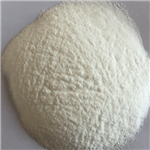Description
Human growth hormone (HGH), also called somatotropin, is a hormone that the pituitary gland, which is about the size of a pea and found at the base of your brain, makes and releases. The pituitary gland has two parts – a front (anterior) and a back (posterior) lobe. The back lobe produces HGH. There are two types of HGH: the kind your body naturally makes and a synthetic version.
Indications
In children, Human Growth Hormone shots treat short stature of unknown cause, as well as poor growth due to a number of medical causes, including:
Turner's syndrome, a genetic disorder that affects a girl's development
Prader-Willi syndrome, an uncommon genetic disorder causing poor muscle tone, low levels of sex hormones, and a constant feeling of hunger
Chronic kidney disease
HGH deficiency or insufficiency
Children born small for their gestational age
HGH for adults with growth hormone deficiency
In adults, approved uses of Human Growth Hormone include:
Short bowel syndrome, a condition in which nutrients are not properly absorbed due to severe intestinal disease or the surgical removal of a large portion of the small intestine
HGH deficiency due to rare pituitary tumors or their treatment
Muscle-wasting disease that comes with with HIV or AIDS
Side effects
Possible side effects of Human Growth Hormone (HGH) use include:
Nerve, muscle, or joint pain
Swelling due to fluid in the body's tissues (edema)
Carpal tunnel syndrome
Numbness and tingling of the skin
High cholesterol levels
HGH can also increase the risk of diabetes and contribute to the growth of cancerous tumors.
Structure
Human Growth Hormone(Somatotropin) contains two highly conserved intramolecular disulfide bonds that are important for biological activity. Human Growth Hormone consists of 178–191 aa residues with two disulfide bonds. In ostariophysan fish, GH contains an additional unpaired cysteine residue. Mr 20,000–22,000, pI 4.9–6.8. GH is soluble in weak acidic or alkaline buffers; insoluble in water, alcohol, acetone, benzene, and chloroform. Human GH is stable in 10M urea for 24 h at room temperature, and stable at 100°C for 10min.





